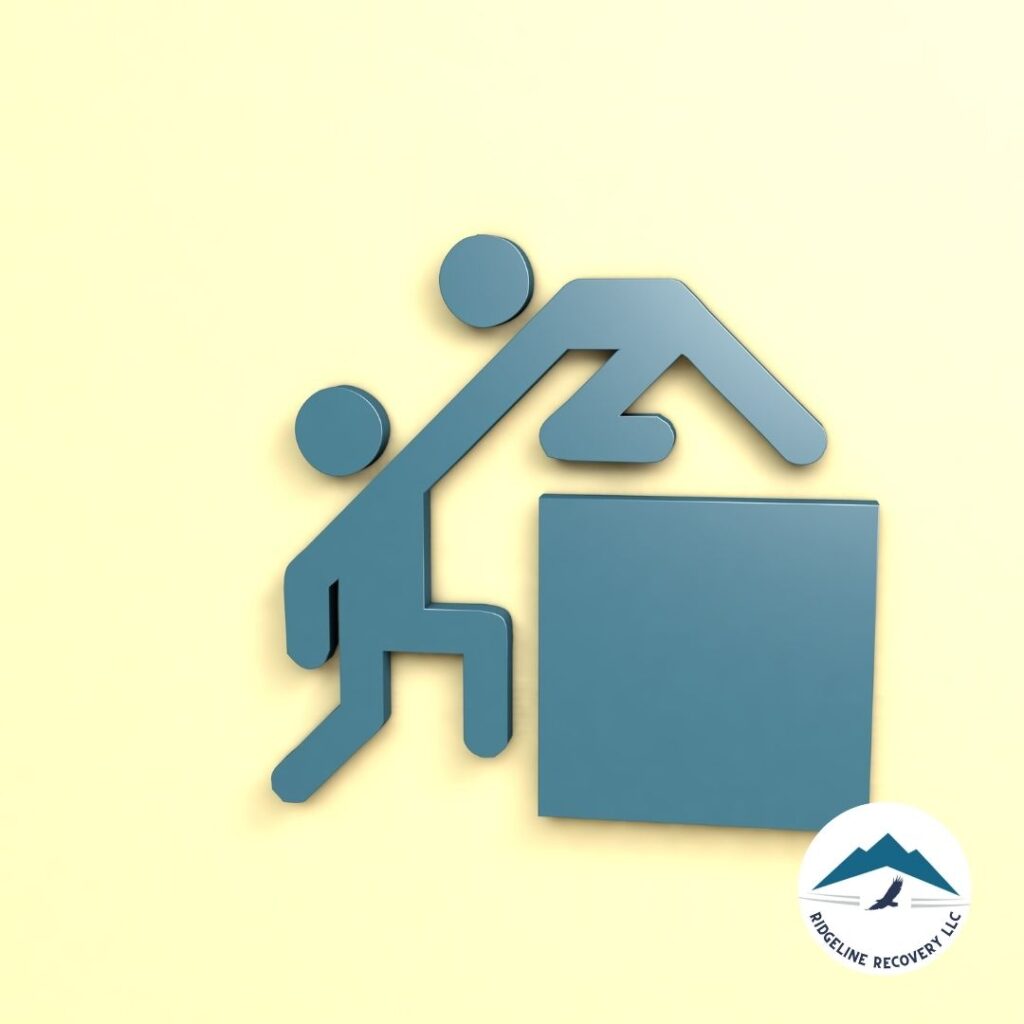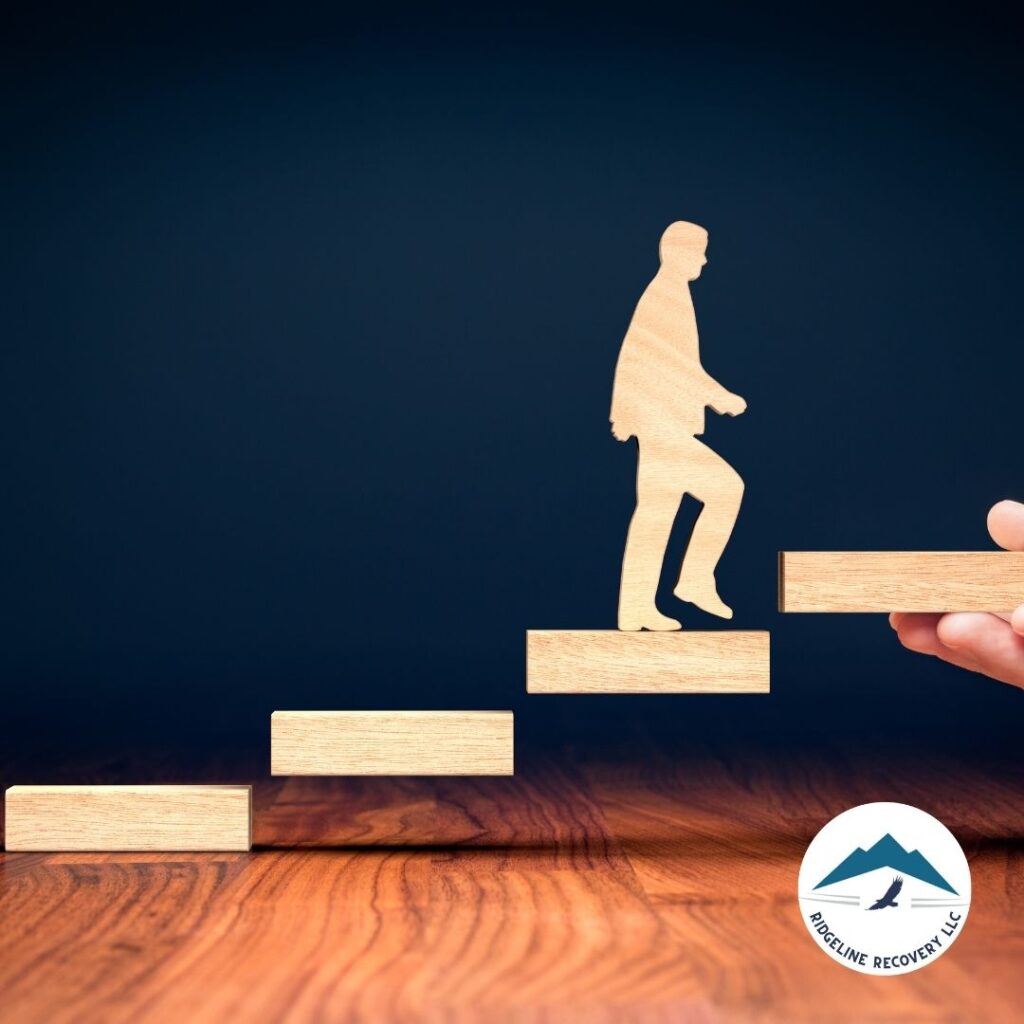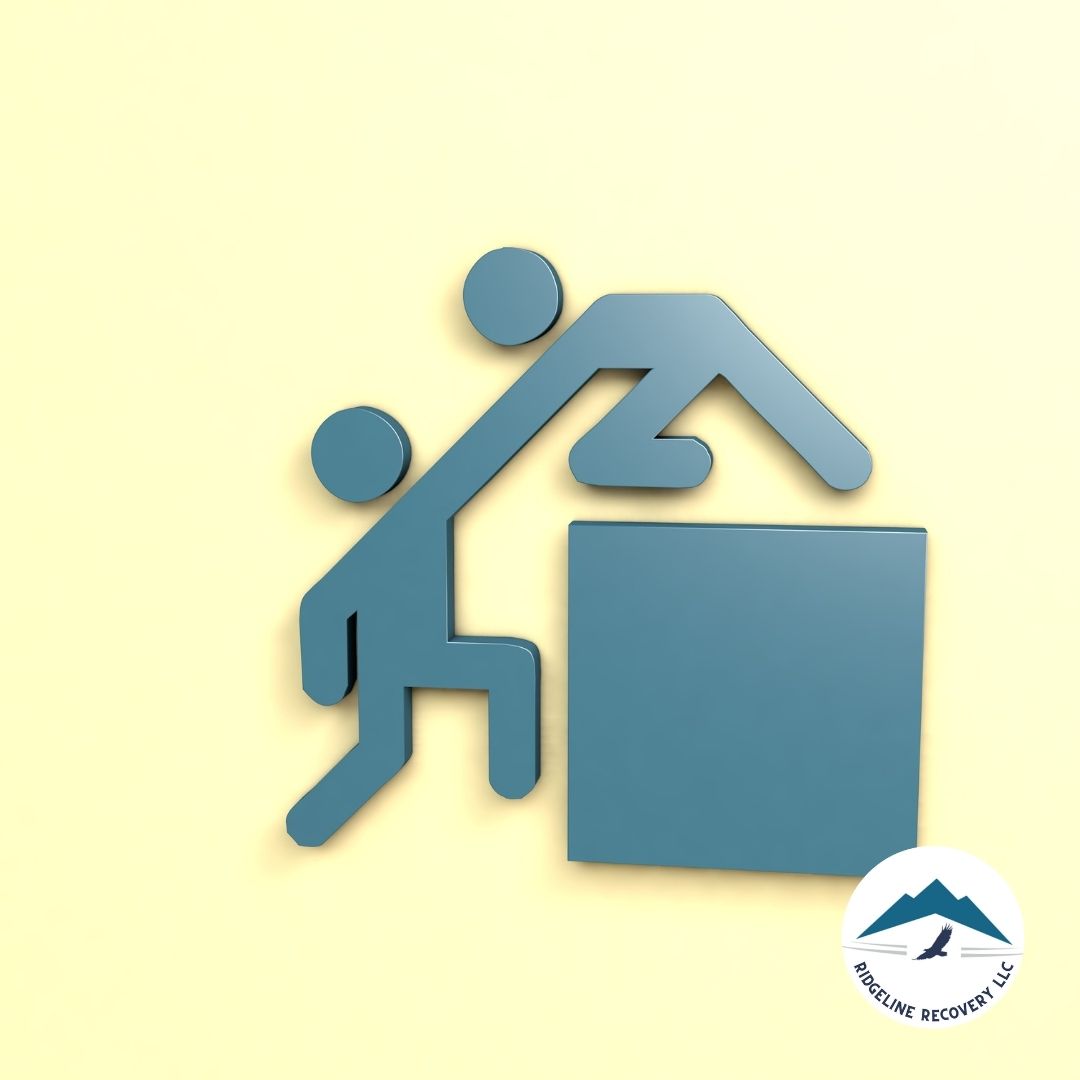Addiction Recovery Columbus? If you’re looking for a path out of addiction and want a solution that fits into your life, day treatment might be it.
The keyword here? “Tailored.”
We’re talking about programs that mold to your needs and offer serious results without upending your daily life. You might wonder: Can day treatment really work for addiction recovery?
Well, if you live in Columbus, OH, you’ve got access to some of the best programs in the area at Ridgeline Recovery LLC. Whether you’re balancing a job, a family, or just looking for a treatment that respects your need for freedom and structure, day treatment is worth exploring.
Let’s get real about how it works, why it’s effective, and the key elements that make a difference.
Why Choose Day Treatment in Addiction Recovery Columbus?
Day treatment isn’t your average 9-to-5; it’s a high-impact recovery program that doesn’t require a total life overhaul. It’s a commitment to change, designed for people who need serious, customized help without the strict lock-down of inpatient programs.
With Addiction Recovery Columbus programs at Ridgeline Recovery LLC, the flexibility of day treatment means you’re here for the therapy, support, and resources you need—then you’re back home each night. This approach offers freedom and support without compromising the intensity needed for true recovery.
Key Benefits of Day Treatment
- Flexibility: You’re not uprooting your entire life. You get the structure and support but can still handle day-to-day responsibilities.
- Affordability: Day treatment can be more cost-effective than full-time inpatient care, making it an accessible option for many.
- Community Focused: You build a local support network with others facing the same struggles, learning how to sustain recovery in real-world environments.
What Makes Addiction Recovery Columbus Day Treatment Effective?
So, what’s the secret sauce? How do programs like Ridgeline Recovery’s hit hard with results? It comes down to three major pillars.
1. Customized Therapy Options
Ridgeline’s addiction therapy services are laser-focused on the individual. Here’s what’s offered:
- Individual Counseling: You dive into personal issues, exploring the roots of addiction and learning to break down the barriers holding you back.
- Group Therapy: Addiction recovery near me and you isn’t isolated. You’ll find strength in shared experiences, learning practical tips from people on similar journeys.
- Mental Health Support: With dedicated mental health therapists on-site, you’re not just treated for addiction but for any underlying mental health struggles—whether that’s depression, anxiety, or trauma.
2. Science-Backed Medication-Assisted Treatment (MAT)
At Ridgeline, MAT isn’t just a buzzword; it’s a strategy. Medications like Vivitrol, available at Vivitrol clinics near me or at Ridgeline, play a crucial role here. MAT works by:
- Blocking Cravings: Vivitrol and similar medications help cut off cravings at the root.
- Minimizing Relapse Risk: MAT gives your body and brain a fighting chance to reset.
Vivitrol is offered on a structured basis here in Addiction Recovery Columbus programs, particularly in day treatment. It’s all part of what’s known as evidence-based practice, using methods that science and studies have backed up.
3. Comprehensive Mental Health Services
Day treatment at Ridgeline doesn’t ignore the mental health aspect. In fact, they integrate mental health services near me, so you don’t need to go far. Every week, you’ll work with a mental health therapist near me or mental health counselor near me, helping to identify and treat the mental side of recovery.
Mental health care includes:
- CBT (Cognitive Behavioral Therapy): Restructure your mindset and retrain how you respond to stressors.
- DBT (Dialectical Behavioral Therapy): Learn to handle emotions effectively—a critical skill when facing addiction triggers.
- EMDR (Eye Movement Desensitization and Reprocessing): Often used for trauma, this therapy is designed to help process painful memories without being triggered.

The Process of Addiction Recovery Columbus Day Treatment
Here’s how it works at Ridgeline:
Step 1: Initial Assessment
A clear picture of where you’re at is essential, so the program starts with an in-depth assessment of both physical and mental health needs. Ridgeline takes a holistic look, which means analyzing not only your addiction but also any underlying mental health conditions.
Step 2: Goal Setting
In addiction recovery, Columbus programs like Ridgeline’s set specific goals to keep you focused. These might include:
- Aiming for a week free of cravings
- Working through personal therapy goals
- Building a network with peers in recovery
Step 3: Therapy and Treatment
This is where the bulk of the work happens. Day treatment means you’re engaged in multiple therapeutic sessions each week:
- Individual sessions to address personal struggles
- Group work to build accountability and community
- Family sessions (if relevant) to rebuild broken relationships and support systems
Overcoming Obstacles: Common Challenges in Addiction Recovery Columbus
Every journey comes with challenges, but the real secret to success? Preparation.
Cravings and Triggers
Let’s be real—cravings are a huge challenge in addiction recovery. Addiction therapy services offered in Columbus day programs like Ridgeline teach you how to manage these through self-awareness techniques, like:
- Recognizing emotional cues
- Practicing grounding exercises
- Reaching out to support systems during cravings
The “Pink Cloud” Phase
Pink clouding is when you feel amazing in the early stages of sobriety. The danger? Overconfidence. Many relapse after this phase when reality hits. With addiction treatment Columbus programs, you’ll work on grounding techniques to stay balanced and keep expectations realistic.
Long-Term Success in Addiction Recovery Columbus: Essential Strategies and Programs
Recovery doesn’t end after a few weeks of treatment—it’s a lifetime commitment, and Addiction Recovery Columbus is designed to offer sustainable support every step of the way. The goal isn’t just to stop using substances; it’s to create a life that thrives without them. Ridgeline Recovery’s day treatment program lays the foundation for just that, offering tools, therapies, and real-world strategies you can integrate into your life.
The Power of Structure in Addiction Recovery Columbus
Day treatment programs like those at Ridgeline are structured with purpose. This isn’t just about clocking in hours; it’s about using every minute to reinforce new habits and behaviors that will sustain recovery for the long haul.
Why Structure Matters
In the chaos of addiction, life often lacks routine. Building structure through Addiction Recovery Columbus programs offers several benefits:
- Predictability: Knowing what to expect each day can reduce anxiety, which is often a trigger for substance use.
- Accountability: Sticking to a schedule creates a sense of responsibility toward yourself and your recovery.
- Skill-Building: Structure allows you to gradually integrate new coping skills and apply them in real-life settings.
Creating Personal Routines
While Ridgeline’s day treatment provides a structured schedule, it’s crucial to build your own routines outside of therapy sessions as well. Here’s how:
- Morning Mindfulness: Start your day with a moment of reflection or meditation. This can center your mind and set a positive tone.
- Daily Check-ins: Throughout the day, pause to assess your mental state and note any triggers. These “check-ins” are simple but effective for maintaining self-awareness.
- Evening Gratitude Practice: End your day by listing things you’re grateful for. This keeps you focused on positives, no matter how small.
Practical Coping Mechanisms for Addiction Recovery Columbus
When cravings or triggers arise, having a set of go-to coping mechanisms can make the difference between relapse and resilience. Here’s a closer look at the top methods taught in Addiction Recovery Columbus.
Mindfulness and Grounding Exercises
Mindfulness isn’t just a buzzword. It’s one of the most effective ways to manage cravings and emotional responses in real time. Ridgeline’s addiction therapy services emphasize mindfulness techniques, such as:
- Deep Breathing: Slow, deep breaths can activate the body’s relaxation response, helping to calm the mind during moments of intense stress.
- The 5-4-3-2-1 Technique: Focus on five things you see, four things you can touch, three things you hear, two things you smell, and one thing you taste. This helps anchor you to the present moment.
- Body Scanning: Take a few minutes to focus on each part of your body, noticing any tension and consciously relaxing it. This reduces stress, helping prevent impulsive reactions.
Building a Sober Social Network
Isolation is a major risk factor in relapse, which is why building a strong social support network is crucial in addiction recovery.
- Attend Support Groups: Programs often suggest joining AA or other support groups that align with your goals. If you’re wondering what are the twelve steps in the twelve-step program?, they focus on mutual aid, accountability, and spiritual growth.
- Seek Sober Activities: Transitioning to a lifestyle that doesn’t revolve around substances can feel strange at first, but there are countless ways to enjoy sobriety. Think sober hiking groups, coffee meet-ups, or art classes.
- Leverage Family and Friends: Don’t be afraid to rely on family members or friends who are supportive of your journey. Many people find that sharing their experiences brings them closer to loved ones.
Holistic Healing in Addiction Recovery Columbus
Recovery isn’t just about quitting substances. It’s about rebuilding your entire self. Ridgeline Recovery integrates mental health services with addiction therapy, emphasizing that true healing addresses the mind, body, and spirit.
Physical Wellness
Your physical health plays a huge role in your ability to stay sober. Poor health can lead to low energy, irritability, and increased risk of relapse.
- Exercise: Regular movement isn’t just for fitness. It releases endorphins, improves mood, and helps manage stress. Programs in Addiction Recovery Columbus often incorporate physical activity as part of treatment.
- Sleep Hygiene: Addiction disrupts natural sleep cycles. Developing a sleep routine can restore healthy rhythms, contributing to better overall mental and physical health.
- Nutrition: Proper nutrition helps repair the damage caused by substance abuse. Working with a nutritionist to learn healthy eating habits can be a part of comprehensive recovery.
Emotional and Spiritual Growth
Addiction therapy near me isn’t just clinical. Many people find strength in spiritual or personal growth as part of their recovery.
- Journaling: Writing down your thoughts, goals, and daily reflections can help you track progress and identify any emotional patterns.
- Therapeutic Art: Expressing emotions through art, music, or writing is a healthy outlet for processing feelings that might otherwise trigger cravings.
- Mindful Walking: Going for a quiet walk with a focus on surroundings and deep breathing can be a spiritual experience in itself, grounding you in the present.
Aftercare Planning: Life Beyond Addiction Recovery Columbus
Day treatment sets the foundation, but real recovery happens long after the structured programs end. Ridgeline Recovery prioritizes aftercare planning to support your transition into a new lifestyle.
Sober Living Options
Sometimes, moving back to your old environment isn’t ideal for your sobriety. Sober living houses near me can provide a stable, substance-free environment while you work on building independence.
- Accountability: Many sober living houses have rules and curfews to keep residents accountable.
- Community Support: Being around others committed to sobriety can ease the transition and provide valuable support.
- Gradual Independence: Sober living allows you to regain independence slowly, with support close by if you need it.
Ongoing Therapy and Support Groups
Staying engaged with addiction recovery Columbus programs, even after completing day treatment, is crucial.
- Weekly Therapy: Continue meeting with a mental health counselor near me or addiction therapist to work through any ongoing challenges.
- Support Groups: Attending groups like AA or NA keeps you in touch with a network of individuals who understand your struggles.
- Alumni Programs: Many recovery centers offer alumni programs, where graduates of the program can connect, share successes, and support one another.
Navigating Advanced Strategies in Addiction Recovery Columbus
After establishing a foundation through structured day treatment, it’s time to look at advanced strategies that can sustain your recovery journey over the long term. Addiction Recovery Columbus isn’t just a single program or solution—it’s a continuous process of adapting and growing. The goal is to empower you with the right tools, resources, and insights to manage every aspect of your life without relying on substances.
Building a Resilient Mindset for Addiction Recovery Columbus
One of the most effective tools in recovery is a resilient mindset. Recovery isn’t always smooth; there are often setbacks and challenges. But developing a mental attitude that embraces resilience can be a powerful anchor.
Key Components of Resilience in Recovery
Resilience in addiction recovery involves more than just “staying strong.” It’s about proactively adapting and finding ways to handle stress and adversity in a constructive manner. Here’s how to cultivate resilience through addiction recovery Columbus:
- Acceptance: Embrace the reality of your situation, including the challenges and changes ahead. Acceptance removes the mental barriers that can cause frustration and self-doubt.
- Self-Compassion: Recovery is difficult. Practicing self-compassion allows you to forgive yourself for past mistakes and focus on the progress you’re making.
- Goal-Oriented Mindset: Setting small, realistic goals provides motivation. These milestones serve as reminders of the progress you’ve made, which strengthens your resolve to keep going.
Practical Exercises to Foster Resilience
- Visualization: Spend a few minutes each day visualizing yourself successfully navigating challenges, staying calm in stressful situations, and overcoming obstacles.
- Affirmations: Reinforce your self-worth and commitment to recovery with positive affirmations. Statements like, “I am strong enough to face today’s challenges” can reshape negative thinking.
- Mindful Reflection: At the end of each day, reflect on how you handled challenges and what you could improve. This approach helps you build a proactive mindset for the future.
Utilizing Addiction Therapy Services for Holistic Healing
Ridgeline Recovery recognizes that recovery goes beyond addressing substance use alone. Incorporating mental health services is crucial for holistic healing.
Benefits of Combined Addiction and Mental Health Treatment
- Addressing Co-occurring Disorders: Many people dealing with addiction also face conditions like depression, anxiety, or PTSD. By integrating mental health therapy, addiction recovery Columbus offers comprehensive support that addresses the full scope of each individual’s needs.
- Therapeutic Techniques for Mental Health and Addiction: Cognitive Behavioral Therapy (CBT), Dialectical Behavior Therapy (DBT), and trauma-informed approaches are effective in treating both mental health and addiction issues.
Accessible Mental Health Services
Finding the right mental health support can feel overwhelming. Mental health clinics near me, mental health therapist near me, and mental health counselor near me are valuable resources to connect with experienced professionals who understand the unique challenges of addiction recovery.
Pro Tip: If you’re just starting, reach out to mental health treatment centers near me for consultations and advice on your recovery journey. Ridgeline Recovery’s team can help you find the right therapist or counselor.

Recognizing and Managing Triggers in Addiction Recovery Columbu
Understanding your triggers is crucial for maintaining sobriety. Different situations, people, and emotions can trigger the urge to use substances, but learning to recognize and manage these triggers is essential for lasting recovery.
Types of Triggers
- External Triggers: People, places, or environments associated with past substance use.
- Emotional Triggers: Feelings like anger, loneliness, or boredom that can drive a desire for substances as a form of escape.
- Situational Triggers: Specific situations that bring about stress or anxiety, such as attending certain events or interacting with particular individuals.
Strategies for Managing Triggers
- Avoidance: When possible, avoid situations or people that may trigger cravings.
- Healthy Outlets: Replace old habits with constructive activities like exercise, creative hobbies, or mindfulness practices.
- Coping Mechanisms: Practice deep breathing, grounding exercises, or talking with a supportive friend or therapist when triggers arise.
Building a Trigger Response Plan
Having a response plan helps you feel prepared. Here’s a simple framework to create your own:
- Identify: Recognize when you’re experiencing a trigger.
- Redirect: Replace the urge to use substances with a healthier activity.
- Evaluate: Reflect on the experience, noting how you handled it and what you might adjust in the future.
Finding Support in Sober Living Houses
Transitioning from treatment to everyday life can be challenging. For many people, sober living houses provide a supportive, substance-free environment that bridges the gap between day treatment and independent living.
Why Sober Living Houses Are Effective
- Accountability: Sober living houses have rules and curfews that keep residents on track, providing structure that supports sobriety.
- Community Support: Being around others committed to recovery reduces feelings of isolation and fosters a sense of belonging.
- Gradual Independence: Sober living helps you reintegrate into society with gradual steps, offering a safe space to rebuild self-sufficiency.
Locating a Sober Living House
If you’re interested in this option, search for sober living houses near me or consult Ridgeline’s team for recommendations. The goal is to find a residence where you feel comfortable and supported as you continue your recovery.
Understanding the Role of Medication-Assisted Treatment in Addiction Recovery Columbus
For certain addictions, Medication-Assisted Treatment (MAT) can provide crucial support. Vivitrol clinics near me and vivitrol clinic near me options are often recommended for individuals recovering from opioid dependence.
What is Vivitrol, and How Does It Work?
Vivitrol is a non-addictive, monthly injection that blocks opioid receptors, effectively reducing cravings and preventing relapse. MAT options, when combined with counseling, have shown to be effective in sustaining long-term recovery.
Pro Tip: MAT isn’t a “one-size-fits-all” solution, but it can be a valuable tool for people who need extra support to manage cravings and withdrawal symptoms. Ask about MAT options at your local addiction treatment columbus ohio facility to see if it might fit your recovery plan.
Building Lasting Habits in Addiction Recovery Columbus
Day treatment and structured programs give you the initial push, but developing healthy habits is what keeps recovery sustainable. Here’s how to establish habits that support your journey long after treatment ends.
The Habit Loop
Every habit is based on a loop of cue, routine, and reward. In addiction recovery Columbus, creating positive routines is essential for breaking free from old patterns. Here’s an example:
- Cue: Feeling stressed after work.
- Routine: Engaging in exercise or mindfulness instead of reaching for substances.
- Reward: Feeling energized, reducing stress, and reinforcing the positive behavior.
Tips for Building New Habits
- Start Small: Commit to one new habit at a time. It might be as simple as a five-minute daily walk.
- Stack Habits: Attach new habits to existing routines (e.g., practicing gratitude after brushing your teeth).
- Stay Accountable: Check in with a support group, therapist, or recovery coach to discuss your progress.
Overcoming Common Challenges in Addiction Recovery Columbus
The road to recovery isn’t without its obstacles. Here’s how to tackle some of the most common challenges in addiction recovery Columbus.
Coping with Precipitated Withdrawal
Precipitated withdrawal can occur during medication-assisted detox and can be highly uncomfortable. If you’re going through detox and experiencing withdrawal, staying connected with your center for detox is crucial for managing symptoms.
Handling Relapse with a Growth Mindset
Relapse is often part of the journey, but it doesn’t mean failure. Learning from each setback and viewing it as part of the recovery process builds resilience. Remember, every step forward is progress.
Addressing Alcoholism and Dementia Disease Concerns
Alcoholism can have long-term effects on cognitive health. For those who have struggled with long-term alcohol dependence, monitoring and addressing the potential link to dementia is crucial. This concern is often addressed in programs like addiction recovery Columbus, where mental health services play a role in evaluating cognitive health as part of the recovery process.
Relapse Prevention Plans: Essential for Addiction Recovery Columbus
Creating a relapse prevention plan is one of the most effective ways to protect your recovery journey. This plan is your roadmap for managing cravings, addressing triggers, and maintaining sobriety.
Steps to Building a Relapse Prevention Plan
- Identify Triggers: Make a list of specific people, places, and situations that may pose a risk.
- Develop Coping Mechanisms: Prepare several options, like deep breathing, calling a friend, or attending a meeting.
- Practice Self-Care: Regularly prioritize activities that keep you physically and mentally healthy.
- Set Realistic Goals: Focus on short-term goals that keep you motivated in the long term.
FAQ Section: Your Questions Answered
Q: Can I continue my job while attending day treatment?
Absolutely. Day treatment is designed to offer flexibility so you can still manage work responsibilities.
Q: How does Vivitrol work, and is it effective?
Vivitrol, available through Vivitrol clinics near me, helps reduce cravings by blocking opioid receptors in the brain. It’s often used as part of medication-assisted treatment in Columbus programs to support long-term recovery.
Q: Is addiction treatment covered by insurance?
Many programs, including Ridgeline, work with providers like Humana in network providers to cover a portion of treatment costs. You can contact them for more details on coverage.
Q: What if I don’t have a support system?
That’s exactly what programs like Ridgeline’s day treatment are designed to offer. You’ll build a network through group therapy, alumni programs, and sober living houses near me if needed.
Q: Can I work while attending day treatment?
Yes, many addiction recovery Columbus day programs allow you to work around treatment schedules. Ridgeline Recovery’s day treatment is designed to be flexible and accommodate outside responsibilities.
Q: How is day treatment different from inpatient rehab?
Day treatment provides intensive therapy during the day, while inpatient rehab requires staying overnight. Day programs are ideal for those who need structure but want to return home daily.
Q: Does insurance cover day treatment?
Most insurances do cover day treatment programs. Ridgeline Recovery works with many providers, including Humana in network providers.
Q: How does Vivitrol work?
Vivitrol, available at Vivitrol clinic near me or Ridgeline, is an opioid antagonist that blocks the brain’s opioid receptors, helping to reduce cravings and prevent relapse.
Long-Term Impact and Your Future in Addiction Recovery Columbus
Day treatment is a stepping stone. The skills, coping mechanisms, and support networks you build here will stay with you. Ridgeline equips you for what lies beyond the treatment center walls.
Finding the Right Fit: Questions to Ask Potential Programs
Not every program is created equal. To find the best option for addiction treatment Columbus Ohio, ask questions like:
- What types of therapy are offered?
- Are there mental health therapists near me as part of the program?
- Do they provide Vivitrol clinic services or other MAT options?
- What’s the balance of individual vs. group therapy?
Wrapping Up: Addiction Recovery Columbus Starts Here
Day treatment is an option that fits your life, respects your commitments, and brings you closer to the freedom you’re aiming for. Ridgeline Recovery LLC offers the flexibility, structure, and support you need to thrive. So, if you’re ready to tackle addiction with a tailored approach, Addiction Recovery Columbus might just be your game-changer.
Call Us Now!
If you or a loved one is struggling with heroin or alcohol dependency, reach out to Ridgeline Recovery Center in Columbus, Ohio, today. At Ridgeline Recovery, we offer a path to hope and healing. Our comprehensive Addiction Recovery services include Addiction Therapy, Addiction Treatment, Vivitrol Clinic and specialized Mental Health Services designed to support your journey to recovery.
We provide Aftercare Programs and Peer Support to ensure you have ongoing assistance after treatment. Our dedicated team offers Case Management and Child Services for those needing extra support. For individuals who prefer a faith-based approach, we offer Faith-Based Recovery options.
Our programs feature Group and Individual Counseling, along with Medication-Assisted Treatment (MAT) to address your unique needs. We also have an Intensive Outpatient Program (IOP) and a Partial Hospitalization Program (PHP) for more structured care.
Our team includes Registered Nurse Services, Psychiatric Services, and Therapeutic Behavioral Services (TBS) to provide comprehensive support throughout your recovery process. We work with various Insurance Coverage plans to help you access the care you need.
Don’t wait—contact us now to start your journey toward a brighter future with Ridgeline Recovery.
For more stories and information Contact Us, visit our Blog page and Stories & Highlights.







